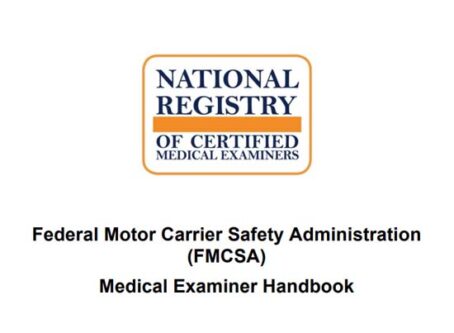Research group to study impact of marijuana legalization on trucking industry
At a time when marijuana laws are changing in many states, a new study is being conducted to investigate the effects of legalization on the trucking industry.
On Feb. 15, the American Transportation Research Institute launched a carrier survey to gather information regarding the effect legalized marijuana has had on the industry’s workforce. The survey seeks input from “motor carrier staff and executives familiar with driver recruitment, retention and drug testing practices.”
The survey asks carriers a number of questions on related topics:
- Hiring policies regarding drivers with past positive marijuana tests.
- Company drug testing practices.
- Current trends in the labor pool.
- Approaches to addressing legal marijuana.
According to ATRI, research about the effects of legal marijuana was identified as a top priority in 2022 by the organization’s Research Advisory Committee. The group says the new information will expand on its 2019 study on the effects of marijuana legalization on roadway safety.
“While increased access to marijuana has not directly impacted the trucking industry in terms of truck drivers testing positive for marijuana, the increased frequency of marijuana-positive drivers operating on the same roadways as trucks makes marijuana-impaired driving a critical safety issue for the trucking industry,” the 2019 study concluded.
However, new data paints a different, unclear picture.
According to data from the Federal Motor Carrier Safety Administration’s Drug & Alcohol Clearinghouse, nearly 41,000 truck drivers tested positive for marijuana in 2022, a difference of 32% over the previous year.
While it’s unclear what has caused such a dramatic shift, it should be noted that FMCSA does not report how many drivers are tested. Because of this, the rise in positives could be attributed to an increase in the total number of drivers being tested.
Regardless of the why, ATRI says the new information will help carriers navigate the issues and obstacles legalized marijuana could create.
“This timely research will provide insight into the specific challenges motor carriers face as the use of recreational marijuana grows in the U.S,” ATRI said in a statement. “The findings should also provide insight into approaches the industry can take to address these challenges.”
The survey will be available through March 17 and can be completed online. ATRI says a separate survey for drivers also will be conducted and will launch in a “couple of weeks”. A full report on both surveys is expected to be published by the middle of this year.
Currently, the U.S. Drug Enforcement Administration classifies marijuana as a Schedule 1 drug. Substances under that classification are “defined as drugs with no currently accepted medical use and a high potential for abuse.”
Despite its Schedule 1 classification, many state governments have legalized marijuana for medical or recreational use. Medical use of marijuana is legal in 38 states, as well as in Washington, D.C. Twenty-one states have legalized cannabis for recreational use. Additionally, seven states have laws that allow for the sale of CBD oil products containing little to no THC, the main psychoactive compound in marijuana.
In fact, there are only four states where marijuana is fully illegal – Kansas, Idaho, South Carolina and Wyoming. However, that soon could change, with proposed legislation in both Kansas and South Carolina to allow marijuana use at the medical or recreational level. There is currently no proposed marijuana-related legislation in Idaho or Wyoming.
In October, the White House issued a statement regarding “marijuana reform.” In it, President Biden urged governing agencies to review how the drug is classified.
“I am asking the secretary of Health and Human Services and the attorney general to initiate the administrative process to review expeditiously how marijuana is scheduled under federal law,” the White House statement read. “Federal law currently classifies marijuana in Schedule I of the Controlled Substances Act, the classification meant for the most dangerous substances. This is the same schedule as for heroin and LSD, and even higher than the classification of fentanyl and methamphetamine – the drugs that are driving our overdose epidemic.”
Despite the evolving legal status of marijuana at the state level, commercial drivers are still prohibited from using the substance. In 2012, the U.S. Department of Transportation outlined its stance on marijuana use among truckers.
“We want to make it perfectly clear that the state initiatives will have no bearing on the Department of Transportation’s regulated drug testing program,” the agency said. “The Department of Transportation’s Drug and Alcohol Testing Regulation – 49 CFR Part 40 – does not authorize the use of Schedule I drugs, including marijuana, for any reason.”
As far as changes to that policy go, Joe Sentef, chief medical officer for FMCSA, said that any potential modifications to those regulations would take some time.
“As of right now, I don’t think we’ve had anything in the works other than informal talks between the White House and HHS (U.S. Department of Health and Human Services),” said during a meeting of FMCSA’s Medical Review Board in October. “So, I would say, if it happens, it’s going to take a while. It’s going to take at least a few years before that happens.”
In spite of a clear stance on marijuana used by the U.S. DOT, there is still some confusion among commercial drivers when it comes to marijuana use. OOIDA’s Consortium Management Co. Inc., the Association’s drug and alcohol consortium, assists drivers in navigating the task of mandatory drug and alcohol testing. FaLisa McCannon, supervisor of CMCI, says the answer to the “can I or can’t I” question is actually pretty cut-and-dried.
“If you hold a CDL and you’re driving a DOT truck anywhere in the United States, it’s still not acceptable to partake in marijuana, regardless of what your state has in place,” McCannon told Land Line Now. LL









